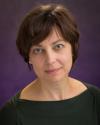The Russian history component of our program focuses on the eighteenth through the twentieth centuries, ending with the collapse of the Soviet Union in 1991. Students also have the opportunity to pursue fields in the history of Russian science and the history of Jews in Russia.
Graduate study in Russian and Central Asian history is supported by our relationship with other programs at the UW, including the Russian, East European and Central Asian Program (REECAS) in the Jackson School of International Studies. REECAS sponsors a yearly conference for faculty and graduate students in the Pacific Northwest. Usually held in April, the event features a distinguished keynote speaker. The REECAS program also sponsors the publication of the Donald W. Treadgold Papers in Russian, East European, and Central Asian Studies, a nationally and internally recognized series of occasional papers featuring current scholarly research on the regions that the title indicates.
Of special importance is our relationship with the Department of Slavic Languages and Literatures, which offers courses in 1st through 4th year Russian, as well as intensive summer classes. In addition to the History Department’s funding opportunities, students in Russian history are eligible for FLAS fellowships, the Jackson Foundation fellowship, and several smaller grants and opportunities specific to the region.
The University’s graduate library has outstanding collections pertaining to Russian history. The library’s Slavic and East European Section actively acquires books, periodicals, newspapers, microfilms, maps, photographs, video-, DVD and CD recordings, CD-ROMs, and commercial Internet resources to build versatile, rich, and coherent research collections pertaining to the Russian, East European, and Central Asian area. At present, the collection totals over 400,000 books, 10,000 periodical titles, and thousands of microforms.
Associated Faculty

Elena I. Campbell
Associate ProfessorGraduate Studies Description
Division: Russia and Central Asia
Professor Campbell's current research interests concern empire, religion and nationalism in late Imperial Russia.
A graduate field will include a variety of topics in Russian history from the 18th to the early 20th centuries. The content of the field and the specific focus of graduate study will be determined through consultation with the professor.
Students will be expected to read major works in Imperial Russian history and be familiar with the current state of the field. Students who are choosing Russian history as their primary area of study must acquire a reading knowledge of Russian and any other language relevant to their research.

Liora Halperin
Professor , Joint Appointment: Jackson School of International StudiesGraduate Studies Description
Division: Africa and the Middle East
Students may work with Prof. Halperin to develop a field focused on the history of Modern Israel/Palestine. This field will situate Palestine/Israel within both Middle East and Jewish historiography, with the particular emphasis depending on the student’s research and teaching objectives. It will draw together works in both Israel Studies and Palestine Studies, pertaining to cultural, economic, social, political, and intellectual history.
Division: Europe, Africa and the Middle East, or Russia
Students may develop a field with Prof. Halperin on Jewish history during the Medieval, Early Modern, and Modern periods. This can be structured as primarily a Europe or Russia field or as primarily a Middle East field, but will in any case explore interrelations between these fields and, secondarily, between these fields other world regions. This field may examine the evolution of relations between Jews, Christians, and Muslims; Jews and the state; forms and challenges of emancipation; commercial networks; cultural, linguistic, and social history; the history of anti-Judaism and antisemitism; and Jewish contact with and entanglements with colonial and imperial projects.
Division: Comparative History (Comparative Colonialisms)
Students may develop a field with Prof. Halperin that explores variants of modern colonialism in global perspective; the interplay of colonialism, civic nationalism, and ethnonationalism; the economic history of empire; and the emergence of the field of settler colonial studies.
Division: Comparative History (Ethnicity and Nationalisms)
Students may develop a field with Prof. Halperin exploring modern ethnonational movements in comparative perspective with particular emphasis on Europe (including Eastern and South Eastern Europe), the Middle East, and South Asia. This field may integrate readings on language revival efforts, cultural movements, anti-imperial nationalisms, and the emergence of the nation-state system and concepts of autonomy, minority rights, partition, and migration.

Glennys Young
Professor, Joint Appointment: Jackson School of International Studies, Howard and Frances Keller Endowed Professor in HistoryGraduate Studies Description
Division: Russia & Central Asia
Graduate study is offered on a wide range of topics pertaining to the history of Russia and the USSR since 1861. Content of the field is determined through consultation with the professor. Students may choose to focus on a "modern Russia" field from ca. 1861 to 1991 or to prepare a field that focuses only on the Soviet period (1917 to 1991) and its legacy. No matter what the chronological parameters of the field are, students are expected to master basic historiography, reading a common "canon" of core works; but they are also encouraged and expected to prepare specific emphases (e.g., gender, religion, ethnicity and nationalism, foreign policy, to give just a few of many possible thematic examples) that will be useful to them in teaching and/or research. But the specific emphases on which students focus may also be chronological (e.g., the 1940s) or theoretical (e.g., historiography that engages, both positively and critically, with the "new cultural history.")
Students prepare a field on "modern" or Soviet Russia for different reasons. Such a field will be very helpful for teaching surveys on European and world history. Because the historiography of the Soviet period has become especially innovative since 1991, especially in the way that it has drawn upon a variety of theoretical perspectives, preparing such a field could be of considerable value to those whose primary field of research pertains to other polities shaped by Marxism-Leninism.
Students will not be expected to read Russian, or other pertinent languages (e.g., Ukrainian, Uzbek, Estonian, among many others) unless their dissertation projects require reading proficiency in one of the languages of the region.